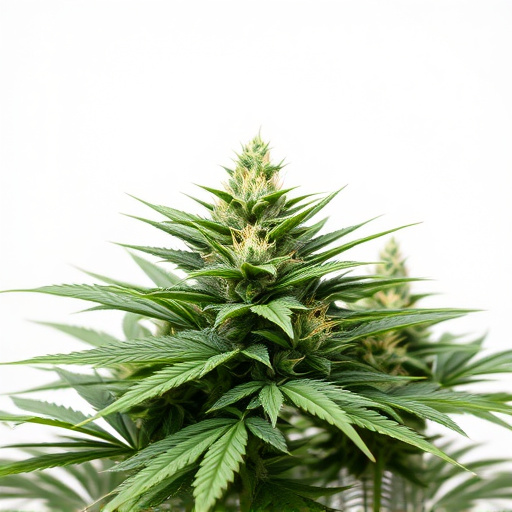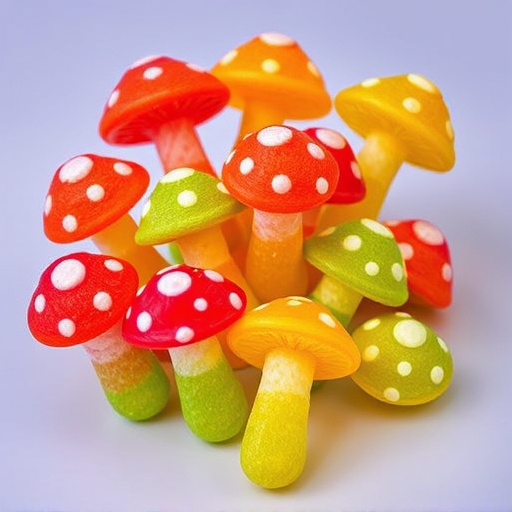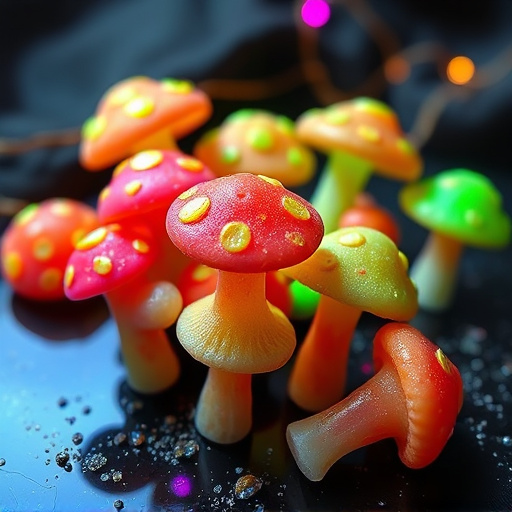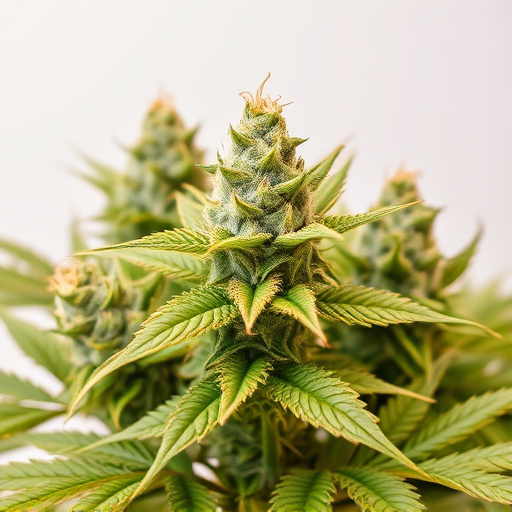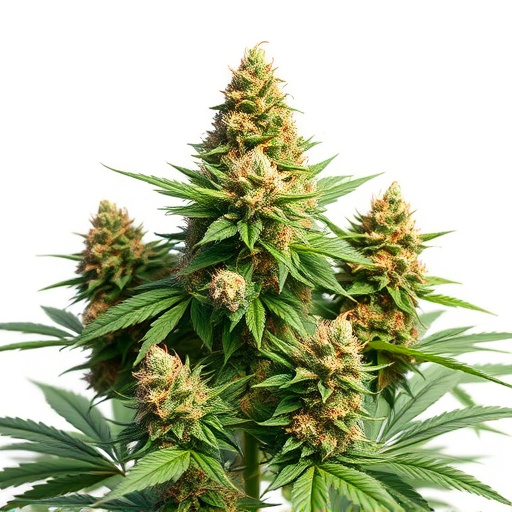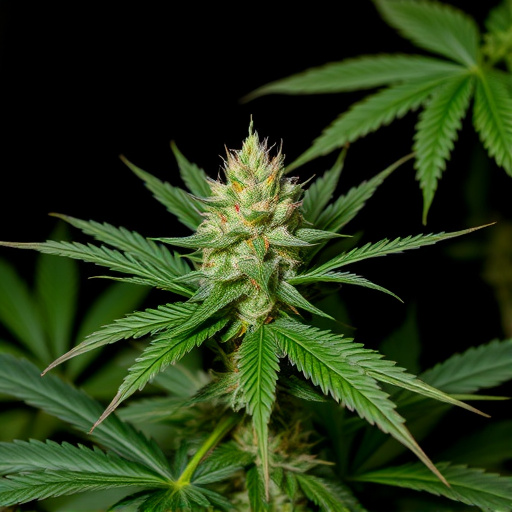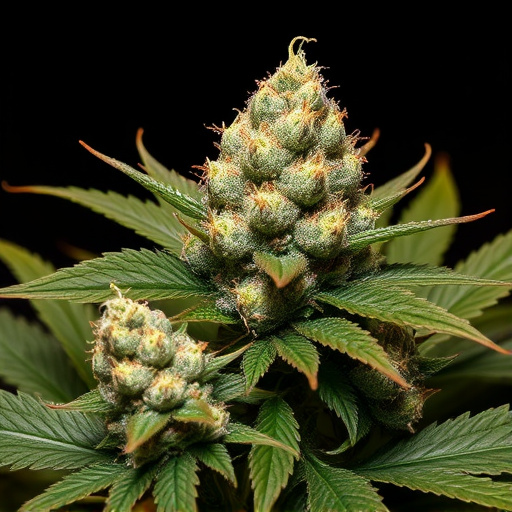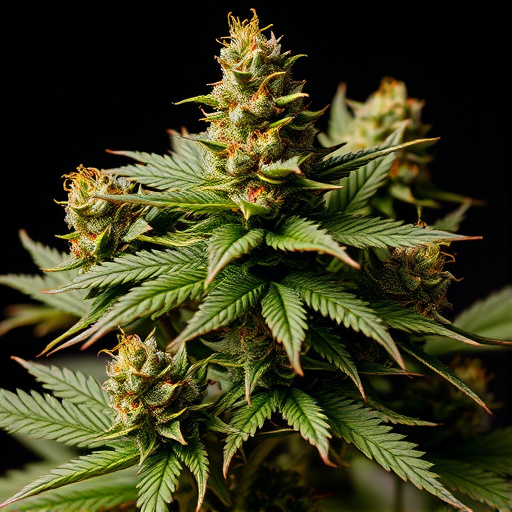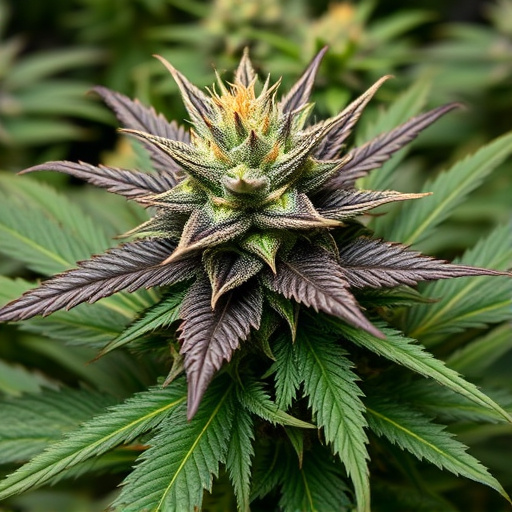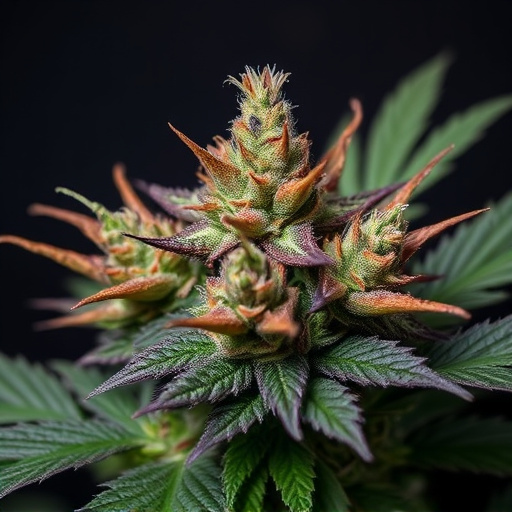Cannabis interacts with the brain's reward system through its effect on dopamine and serotonin, known as "feel-good" chemicals, which are imbalanced in various mental health conditions. Indica dominant strains may increase serotonin levels, leading to reduced anxiety and euphoria, while stimulating dopamine activity to enhance focus and motivation. Understanding these mechanisms offers potential for cannabis' therapeutic use in mental health treatment, with lower THC content mitigating negative impacts on serotonin regulation.
“Unraveling the intricate relationship between cannabis and our brain’s reward and mood regulators, this article delves into how the plant influences dopamine and serotonin systems. Understanding these neurotransmitters is key to comprehending cannabis’s effects on mental health. We explore the specific impact of indica dominant strains, known for their potential to modulate neurotransmitter levels, offering insights into their influence on overall well-being.”
- Understanding Dopamine and Serotonin: The Neurotransmitters of Reward and Mood
- Cannabis and its Impact on Dopamine and Serotonin Systems
- Indica Dominant Strains: Potential Effects on Neurotransmitters and Mental Health
Understanding Dopamine and Serotonin: The Neurotransmitters of Reward and Mood
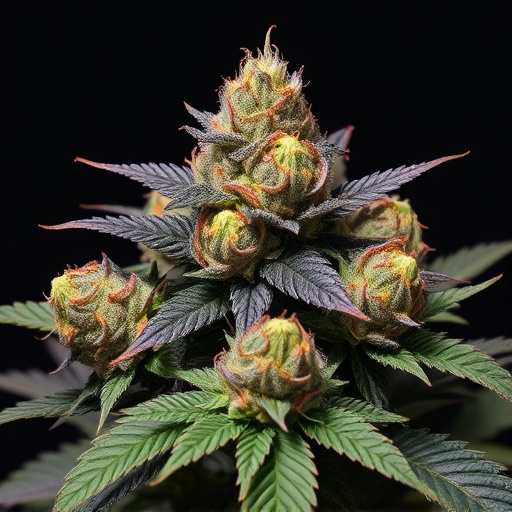
Dopamine and serotonin are two key neurotransmitters that play a significant role in regulating our mood, motivation, and reward systems. Often referred to as the “feel-good” chemicals, they influence various aspects of our daily lives, from experiencing pleasure to managing stress. Dopamine is associated with pleasure, motivation, and movement, while serotonin contributes to feelings of calmness, well-being, and sleep. Imbalances in these neurotransmitters have been linked to several mental health conditions.
Cannabis interaction with the brain’s endocannabinoid system can indirectly impact dopamine and serotonin levels. Indica dominant strains, known for their relaxing and sedative effects, may promote serotonin release, leading to feelings of euphoria and reduced anxiety. Conversely, certain sativa strains, with their energizing properties, are believed to stimulate dopamine activity, enhancing focus and motivation. Understanding these mechanisms can provide insights into the potential therapeutic benefits and effects of cannabis on mental health.
Cannabis and its Impact on Dopamine and Serotonin Systems

Cannabis interacts with the brain’s natural reward system, influencing dopamine and serotonin levels, which play crucial roles in mood regulation, pleasure, and motivation. Indica dominant strains, known for their relaxing and sedative effects, primarily affect the dopamine system by inhibiting dopamine reuptake. This process increases the availability of dopamine in the synaptic cleft, enhancing feelings of euphoria and relaxation.
Additionally, some compounds in cannabis, such as THC, interact with serotonin receptors. While this interaction is complex and can vary depending on the strain, it may lead to changes in mood, appetite, and perception. Indica dominant strains often have lower THC content, which can help mitigate potential negative effects on serotonin regulation, making them a popular choice for those seeking relief from anxiety and stress without the overwhelming cognitive impacts associated with higher THC doses.
Indica Dominant Strains: Potential Effects on Neurotransmitters and Mental Health
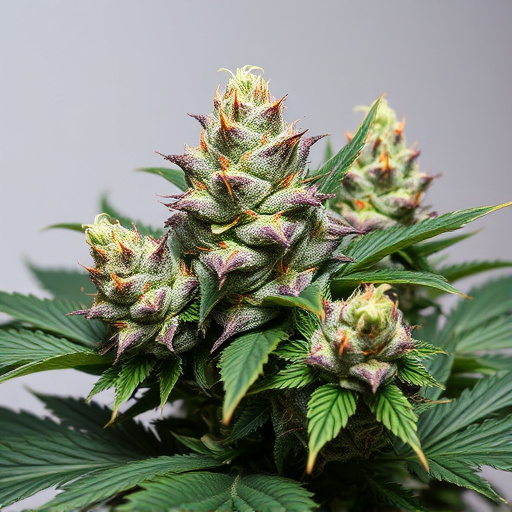
Indica-dominant strains of cannabis have been associated with potential effects on neurotransmitters, particularly dopamine and serotonin, which play significant roles in mental health. These strains are known for their relaxing and calming properties, often inducing feelings of euphoria and tranquility. The interaction between the plant’s chemical compounds, such as terpenes and cannabinoids (including THC and CBD), can modulate neurotransmitter systems in the brain. Research suggests that indica-dominant cannabis may stimulate the release of dopamine, leading to an enhanced reward system and potentially positive effects on mood and motivation.
Additionally, some studies propose that these strains could interact with serotonin receptors, influencing its activity. Serotonin is crucial for regulating appetite, sleep, and mood. The effect of indica-dominant cannabis on serotonin may contribute to improvements in symptoms associated with conditions like anxiety and insomnia. However, it’s essential to approach these findings with caution, as the complex relationship between cannabis and neurotransmitters requires further exploration.
In understanding how cannabis affects dopamine and serotonin, we uncover insights into its complex interaction with our brain’s reward and mood systems. While research continues, particularly focusing on the effects of indica dominant strains, it’s evident that cannabis can modulate neurotransmitter activity, impacting both pleasure and emotional regulation. This knowledge is crucial for navigating the potential benefits and risks, especially when considering the growing interest in indica-dominant strains for their reported mental health effects.

